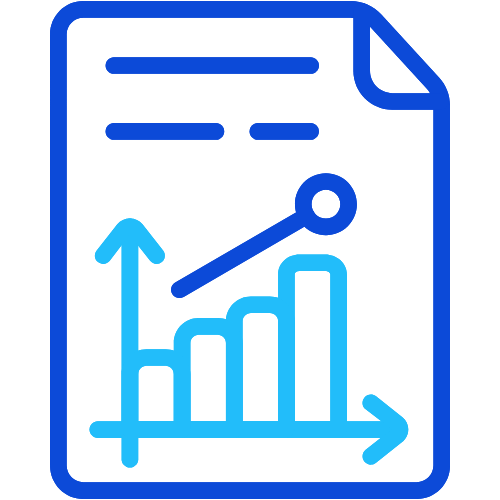
-
-
- Education
- Lawyers
- E-Commerce
- Real Estate
- Physicians
- Non-profit
- Advertising
- Franchise
- Amazon Sellers
- Rental
- Aged-Care
- Farming
- Architects
- Mining
- Manufacturing
- Pharma
- IT Sector
- Travel and Tourism
- Transportation and Trucking
- Power & Infrastructure
- Wholesaler
- Trading firms
- Gems and Jewelry
- Contractors
- Dentists
- Gas Stations
- Tech Startups
- Artists
- Insurance
- Distribution
- Retail Stores
- Veterinary
- Import/Export
- Bookkeeping for Cryptocurrency and Blockchain
- View More industries
-
-
-
- Bookkeeping service
- Payroll management
- Receivables Management
- Payables Accounting
- Grow your Business
- Business Setup in India
- Bookkeeping for CPA’s
- Tax Return Service Business Owners
- Move To Digital
- CFO Services
- Tax Services
- Valuation Services
- Dedicated staff
- White Label services for CPA firms
- Power BI Reporting for Financials
- Backlog Cleanup Service
- Convert to Xero
- Cloud AddOns
- Odoo Development/Customization and Bookkeeping
- Power BI and Google looker studio reporting
-
- Contact-us
Restaurant Bookkeeping Tips for Boosting Profits
Table of Contents
ToggleEffective restaurant bookkeeping is important for success and profitability in any restaurant venture. In 2024, the industry is now characterized by new challenges like cost increases and changing tastes. To thrive in the same environment, restaurant proprietors must adopt precise financial management practices. Here are the top restaurant bookkeeping tips to help boost profits this year.
Beside the accurate bookkeeping, introducing technology solutions like POS and accounting software will streamline restaurant processes. It can ensure automation of data entry while showing real-time insights into a restaurant’s performance. Restaurant owners can take proper decisions to improve efficiency and profitability.
Benefits of Restaurant Bookkeeping
1. Accurate Financial Insights:
- provide a transparent view of earnings, costs, and profitability.
- Helps identify trends, enabling better decision-making for the business.
2. Cost Control:
- Tracks food, labor, and overhead costs to prevent overspending.
- Helps analyze profit margins and adjust pricing or purchasing strategies.
3. Tax Compliance:
- Ensures proper documentation and reporting for accurate tax filing.
- Helps preserve compliance with tax rules and prevent penalties.
4. Cash Flow Management:
- Monitors cash flow to ensure there is enough liquidity to cover expenses.
- Helps prevent cash shortages that could impact operations.
5. Financial Planning:
- Aids in budgeting and forecasting for future growth and sustainability.
- Provides data for long-term financial strategies and investment decisions.
6. Audit Preparedness:
- guarantees that, in the event of an audit, records are accessible and well-organized.
- Reduces the risk of penalties by maintaining transparent, accurate records.
Core Aspects of Restaurant Bookkeeping
1. Revenue Tracking:
- Record and categorize all sources of income (dine-in, takeout, delivery, etc.).
- Monitor daily sales to ensure consistency and identify fluctuations in revenue.
2. Expense Management:
- Track all restaurant expenses, including food, labor, utilities, and rent.
- Categorize expenses to better understand cost structures and reduce waste.
3. Inventory Management:
- Maintain accurate records of inventory levels to prevent reordering of stock outs.
- Use inventory data to track food costs and minimize waste.
4. Payroll Processing:
- Ensure accurate payroll calculations for hourly and salaried employees.
- Deduct taxes and benefits while maintaining compliance with labor laws.
5. Tax Management:
- Track sales tax, payroll tax, and other tax obligations.
- Ensure all tax filings are accurate and submitted on time to avoid penalties.
6. Cash Flow Management:
- Regularly monitor cash inflows and outflows to maintain liquidity.
- Identify potential cash flow problems before they affect daily operations.
Restaurant Bookkeeping Tips to Maximize Profits in 2024
- Track Every Expense and Revenue: Accurate tracking of expenses and revenue is the foundation of effective restaurant bookkeeping. It’s essential to record every financial transaction, including food and beverage costs, payroll, utilities, and other operational expenses. By maintaining detailed records, you gain a clear picture of your restaurant’s financial health. Utilizing restaurant bookkeeping services can help automate this process, ensuring all transactions are accounted for and organized.
- Monitor Food and Labor Costs: Food and labor are typically the most significant expenses in a restaurant. Monitoring these costs closely can prevent them from eroding your profits. Implementing a system for inventory management can help reduce food waste and ensure that you’re not over-ordering. Similarly, scheduling staff efficiently based on expected business levels can help control labor costs. Restaurant bookkeeping services can provide detailed reports on these expenses, making it easier to spot inefficiencies and areas for improvement.
- Regularly Reconcile Accounts: Account reconciliation is a crucial aspect of restaurant bookkeeping. This process involves matching your financial statements with bank statements to ensure that all transactions are accurately recorded. Regular reconciliation can help you identify any discrepancies, such as missing transactions or errors, and correct them promptly.
- Utilize Financial Reports for Decision Making: Financial reports are valuable tools for making informed business decisions. Key reports, such as profit and loss statements, balance sheets, and cash flow statements, provide insights into your restaurant’s financial performance. These reports can help you identify trends, such as seasonal fluctuations in revenue or increases in certain expenses. By analyzing this data, you can make strategic decisions about menu pricing, marketing efforts, and cost-cutting measures. Professional restaurant bookkeeping services can generate these reports regularly, ensuring that you always have the information you need to make informed decisions.
- Plan for Taxes and Compliance: Understanding your tax obligations and setting aside funds for tax payments can prevent financial surprises and ensure compliance with regulations. Keep track of all deductible expenses, such as equipment purchases, repairs, and business-related travel. Working with a professional accountant or restaurant bookkeeping service ensures that you comply with tax laws and maximize your deductions, ultimately boosting your profitability. Staying compliant with tax laws and regulations is not only legally required but also essential for avoiding penalties that can impact your profitability.
- Invest in Technology and Automation: Incorporating technology into your restaurant bookkeeping processes can save time and reduce errors. Accounting software, such as Quickbooks or specialized restaurant accounting platforms, can simplify tasks like invoicing, payroll, and expense tracking. Automation also allows you to generate financial reports quickly and accurately. Investing in technology not only improves efficiency but also provides more accurate and up-to-date financial information, enabling you to make better business decisions.
- Review and Adjust Menu Pricing:
- Cost of Goods Sold (COGS) Analysis: Regularly review the cost of ingredients and production to ensure your menu prices are aligned with your profit margins.
- Market Research: Analyze competitor pricing and customer preferences to adjust menu pricing competitively, maximizing revenue without sacrificing customer satisfaction.
8. Track and Manage Cash Flow:
- Cash Flow Forecasting: Regularly track and forecast cash flow to ensure your restaurant can cover operational costs, including unexpected expenses.
- Monitor Receivables and Payables: Stay on top of accounts receivable and accounts payable to prevent cash flow disruptions and avoid late fees or missed payments.
Simplify Your Restaurant Bookkeeping with Meru Accounting
1. Automated Financial Tracking:
- We provide automatic tracking and categorizing of expenses and revenue, saving time and reducing manual errors.
- Integrates with your POS and accounting systems for seamless data flow.
2. Customizable Financial Reports:
- We generate detailed profit and loss statements, balance sheets, and cash flow reports tailored to your restaurant’s needs.
- Use real-time insights to make informed decisions about menu pricing, labor scheduling, and marketing strategies.
3. Efficient Tax Management:
- We keep track of deductible expenses and set aside funds for tax payments to avoid surprises.
- Ensure compliance with tax laws, reducing the risk of penalties and maximizing deductions.
4. Expense Monitoring and Control:
- Our team tracks food, beverage, and labor costs, helping you spot inefficiencies and take corrective actions.
- Use data to optimize inventory management and reduce waste, improving overall profitability.
5. Payroll Automation:
- Meru Accounting automates payroll calculations, tax deductions, and payments to ensure timely, accurate processing.
- Stay compliant with labor laws and reduce administrative workload.
6. Streamlined Bank Reconciliation:
- You can automatically reconcile your accounts with bank statements, ensuring accuracy and consistency in your financial records.
- Identify discrepancies early to avoid errors in your financial reports.
Conclusion
Effective restaurant bookkeeping is key to boosting profits and ensuring long-term success. At Meru Accounting, we offer expert restaurant bookkeeping services tailored to boost your profits in 2024. Our services include precise expense tracking, labor and food cost monitoring, regular account reconciliation, and detailed financial reporting. We help with tax planning and compliance, ensuring you meet all regulations while optimizing deductions. By utilizing advanced technology, we simplify your bookkeeping processes, providing clear insights for strategic decision-making and financial growth.






















































































